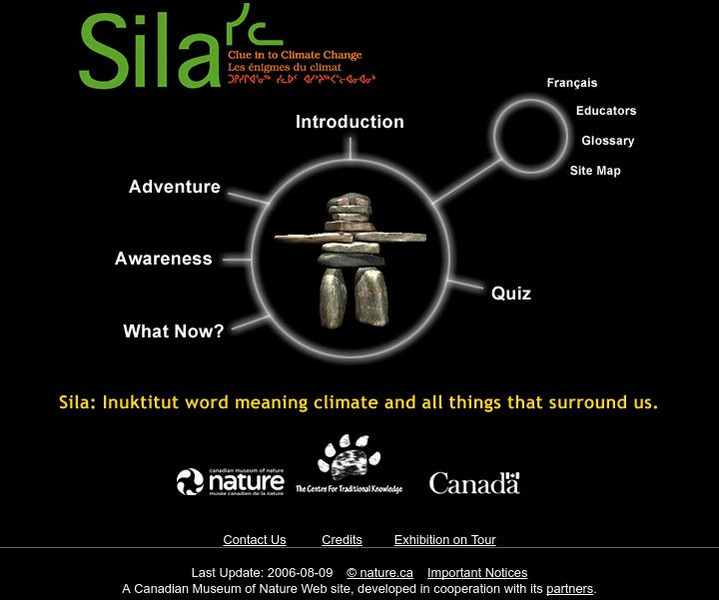Hi, what do you want to do?
Curated OER
World Meteorological Day
In this World Meteorological Day activity, students read or listen to a passage, then match phrases, fill in the blanks, choose the correct word, unscramble words and sentences, put sentences in order, write discussion questions and...
Curated OER
Halloween Literature Unit: Pumpkin Patch Unit Project
Students simulate an agriculture project. In this sequencing lesson, students observe their classroom pumpkin patch, make journal entries, and predict how the pumpkins will grow. They discuss as a class how to keep their pumpkins safe...
Curated OER
Weather Watchers
Students practice using objective and quantitative means to describe and compare the weather. They compile weather conditions and create a spreadsheet to record their findings.
Curated OER
Fossil Formation
Students discuss fossils. In this science lesson, students simulate fossils within Earth's layers by using gummy fish and bread.
Curated OER
Growing Tomatoes From Seed Activity
In this growing tomatoes worksheet, students plant tomato seeds in February, and follow their growth through the summer break. They observe and investigate the plant growth from seed to plant.
Curated OER
Are You Getting Thirsty?
High schoolers study droughts and how they affect communities and coastal ecosystems. In this ecosystems lesson plan students use data to examine drought conditions in certain areas.
Curated OER
Mapping a Refuge
Students record observations gathered while at a national wildlife refuge. In this lesson on wildlife refuges, students choose an observation spot and record seasonal changes throughout the year.
Curated OER
Horticulture Crops in the agro-ecosystem
Ninth graders apply ecological analysis to fruit and vegetable production systems. In this horticulture lesson plan students learn about different management practices.
Curated OER
What are the Challenges?
Students discuss energy. In this energy challenges instructional activity, students read about greenhouse gas emissions and global climate change. Comprehension questions from the reading are provided.
Curated OER
Aquifers: Unlimited or Not
Pupils understand that an aquifer can become a non-renewable resource if it is not used wisely. Students do an experiment that recreates an aquifer in the classroom.
Curated OER
Three-Hole Bottle
Middle schoolers participate in an experiment with a 2-liter bottle. They develop their own hypothesis about what they believe will happen when certain items are tested on the bottle. They discuss results.
Curated OER
Hurricane Katrina Relief
Students research philanthropic organizations that helped after Hurricane Katrina. They organize a collection drive to contribute to the nonprofit organization. They reflect on their efforts.
Curated OER
Conflict Resolution
Students consider how conflict resolution principles can be used by countries. In this diplomacy lesson, students participate in a simulation that requires them to use conflict resolution skills to settle a fictional country and deal...
Curated OER
Polymers and Crystals
Students experiment with crystals and polymers and examine their roles in food science.
American Museum of Natural History
American Museum of Natural History: What Is Water?
This comprehensive article provides information about the physical properties of water, the importance of water as an Earth material, the processes and cycles that water undergoes on Earth, its importance to life on Earth, and why we...
BioEd Online
Bio Ed Online: Can Nutrients in Water Cause Harm?
Many different kinds of organisms live in water. Excess nutrients can cause over-abundant growth of some organisms living in water and non-point source pollution is a major threat to water supplies in the United States. In this lesson...
Other
Nc Department of Energy and Natural Resources: What Is Stormwater Pollution
When it rains, some of the rainwater soaks into the ground, and part of it flows over the ground and directly into creeks, streams, or rivers. This water that runs off into the river is called runoff, or sometimes stormwater runoff....
Other
North Carolina Department of Energy and Natural Resources: Pollution Solutions
Try to find at least eight things in the picture that could cause litter, waste, or other pollutants to end up in the storm drain and eventually flow into nearby lakes and streams. Includes a link to an interactive page of this activity....
Canadian Museum of Nature
Canadian Museum of Nature: Sila: Clue Into Climate Change
The Arctic is where climate is changing at a faster pace than any other place in the world. Explore Water, Earth, Fire, and Air to investigate the basic elements that support all life and learn about the impact climate change is having...
Nature Conservancy
The Nature Conservancy: From America's Rainforest to America's Desert
On this virtual field trip, teachers will help their students travel to the lush, rain-soaked splendor of the Olympic Peninsula and explore the urban watershed of Seattle. Next, they will head to Arizona's dry, desert landscape and take...
Other
Florida Dept. Of Education: Conservation of Renewable and Nonrenewable Resources
In this learning module, students learn to differentiate between renewable and nonrenewable resources, and identify resources that fit into each category. It explains the environmental effects of using nonrenewable resources, such as...
PBS
Pbs News Hour Extra: Tracking the Health Effects of Natural Disasters
Students examine the impact of natural disasters, such as flooding, on public health, and study diseases and other secondary conditions associated with stagnant water. Lesson includes resources for students to research epidemics and...
TeachEngineering
Teach Engineering: Can You Catch the Water?
Students construct a three-dimensional model of a water catchment basin using everyday objects to create hills, mountains, valleys and water sources. They experiment to see where rain travels and collects, and survey water pathways to...
The Wonder of Science
The Wonder of Science: K Ess3 3: Environmental Solutions
This NSTA vetted source includes resources to teach ideas on reducing the impact of humans on the environment. Included are assessment ideas, videos, examples, lesson plans, and photos of student work.



























